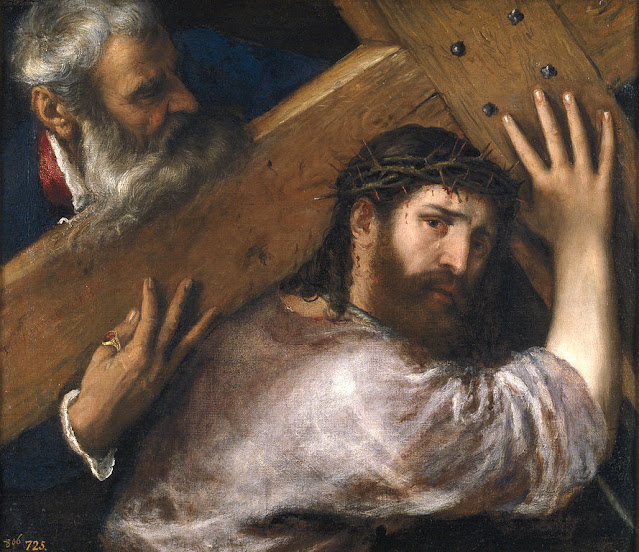That question is at the heart of our readings today. Throughout the history of mankind’s relationship with God, human beings have struggled with wanting to be in charge of how and when we relate to God. We want God’s love and presence and assistance, but only on our terms. But this week, our readings remind us that our covenant with God is one that necessitates we understand that he is the one truly in charge, and that is for our benefit.
The reading from the Old Testament – about the Spirit coming down to rest upon the various members of the Israelite community – is a foreshadowing of the event we call Pentecost, when the Holy Spirit was poured out upon the Apostles and the other disciples after Jesus’s Ascension. This is not an abstract reality, but something that really happens even today – that by means of the sacraments, especially baptism and confirmation, the Holy Spirit doesn’t just dwell among us, as the Christian community, but *within* us as individuals.
But this returns us to the question I asked at the beginning: “who's in charge?” God wants us all to share in his authority, which is why he gives us the graces of the Holy Spirit, the very presence of the Spirit to lead and guide us. But while we are his instruments, the authority always remains his. It is the Lord who must be in charge of our lives, not us. When we forget that, we become like the apostle John in the Gospel. He is dismayed, perhaps even jealous, that those who were not explicitly followers of Jesus were displaying signs that they too had received the Holy Spirit. Take note of Jesus’s response – basically, he says, “Leave that to me – I am in charge here, not you.”
 |
| Contemplation (1896) by Jozef Israëls |
Jesus wanted his disciple John to be attentive to his own self, and so does he ask the same of us. We must be on guard against causing scandal, and giving others a reason to sin. We must be aware of how even things we consider small or unimportant can separate us from the love of God and prevent the Holy Spirit from being active within us. We need to be careful in our attitude toward acquiring wealth and focusing on material things, as St. James tells us in the second reading. Often, we acknowledge the Lord’s authority in simple, concrete ways: by resisting temptations to jealousy, by committing ourselves to sharing what we have with those who are less fortunate, by examining our own attitudes to see where we might be living hypocritically, not in accord with what we profess in faith. If we are going to acknowledge the Lord’s authority, then we have to be committed to submitting to the Lord’s authority in all things.
So, brothers and sisters, when we think about our lives, our futures, our daily interactions with others, we can ask, “Who's in charge?” The answer must be God – not that we should abandon all agency and action, but rather that we should always be aware of how we must make space in our lives for the Lord’s action in us. Let us pray that his Spirit, whom he has given to us in baptism and confirmation, and who prepares us now to receive the Sacrament of the Altar, may the Spirit strengthen us to live in the truth of Christ and give witness to him in all things.


